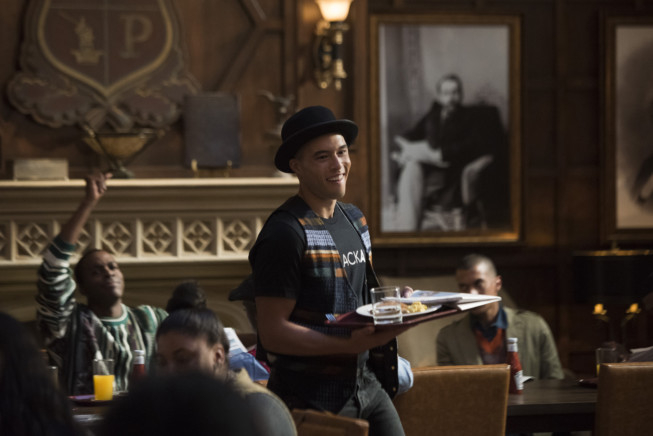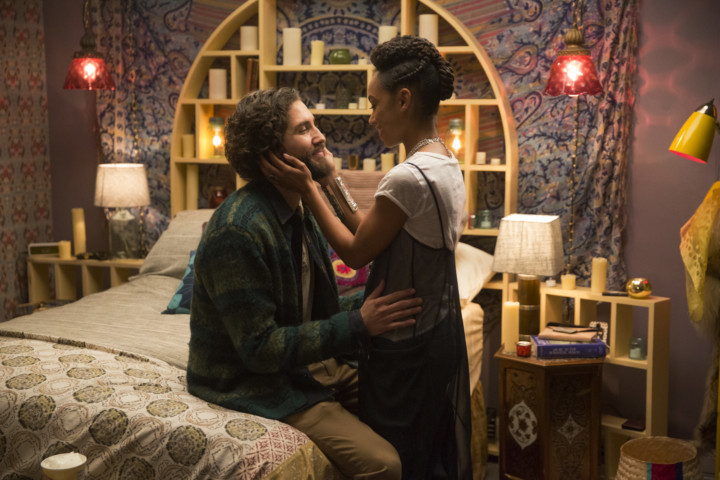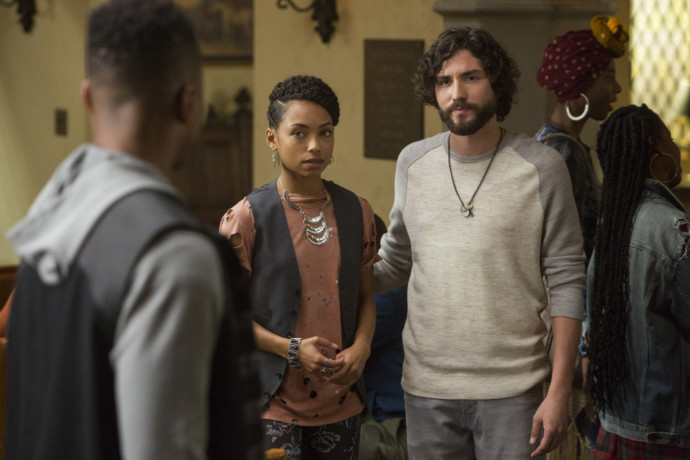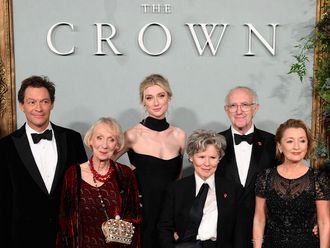
Television and cinema have lately been suffering from category confusion. Films have been morphing into TV series, for better (The Girlfriend Experience) and worse (Taken). Game of Thrones producer David Benioff has described his show as a “73-hour movie”. Increasingly, the only thing that seems to distinguish the two art forms is the freedom to make your own popcorn.
Dear White People, based on Justin Simien’s 2014 satirical sprint through the identity obstacle course of higher education, survives the transition from film intact and in some ways better. The Netflix comedy, whose 10-episode first season arrived on Friday, keeps the movie’s essence but recognises that TV is not just the movies with smaller screens and longer run times.
The series retains the film’s ebony-and-ivory-tower premise, a close study of students in a traditionally African-American dorm at the mostly white, Ivy League Winchester University. It has the same concerns: appropriation and assimilation, conflict and conflictedness.
An executive producer of the series, Simien writes and directs three episodes — Yvette Lee Bowser (Living Single) is the showrunner — with a mostly new (and capable) cast. The title comes from a polemical radio show on which Samantha (Logan Browning) dresses down white students; some react defensively, while others want to prove, overeagerly, that they get it.
Sam’s activism is partly a way to work through her biracial identity. Her romantic life echoes that: She’s discreetly dating an earnest, progressive white guy, Gabe (John Patrick Amedori), but is drawn to Reggie (Marque Richardson), a firebrand black protester.
The movie was audacious, irreverent and feisty, with a feel for the tripwires of a supposedly postracial era. It also sometimes felt spread thin by trying to represent a broad range of experiences. The series fleshes out its characters by using its extra time well and embracing the episodic structure of TV.
Each episode, excepting the finale, focuses on a particular character. These include Troy (Brandon P Bell), son of the dean of students (Obba Babatunde), who bottles up the stress of his father’s expectations; and Lionel (DeRon Horton), a gay intellectual student journalist who’s just becoming comfortable with his sexuality.
This character deep-diving is a useful way to complicate first impressions. Coco (Antoinette Robertson) is at first blush Samantha’s opposite — social-climbing, apolitical and concerned with fitting in among white students.
But it’s Coco, a scholarship student, who calls out Samantha for being oblivious to how her own “light-skin privilege” gives her leeway with white people: “You get away with murder,” Coco says, “because you look more like them than I do.”
Despite the title, Dear White People is more concerned with intraracial relations: who is real enough, representative enough, woke enough. Whiteness isn’t the show’s subject or object so much as it’s the social medium through which the characters have to wade. In a flashback, we learn that Coco and Samantha, as new friends, adopted the Dear white people catchphrase as a way to talk to each other: They riff variations on it to bond, commiserate and fight.
Dear White People loves to riff; it’s arch, playful and pop literate. The narrator (Giancarlo Esposito) announces that he was chosen for his “ethnic but nonthreatening voice.” The students gather to hate-watch Defamation, a Scandal parody, and Samantha describes her dorm as “like a mini Hillman College” (the historically black institution on A Different World).
The rapid-fire jokes don’t all land, the supporting characters can be cartoonish and the satire didactic. The show’s strength is its confident, consistent voice. It also retains Simien’s visual style from the film, despite having several directors. (Barry Jenkins of Moonlight directs the fifth episode, involving a police incident that hangs over the rest of the season.)
One of Simien’s signatures is to have actors stare into the camera directly, both in group shots and in cutaways during one-on-one conversations. The device underlines the show’s mission: to intrude on your safe space, to demand engagement, to make clear that, yes — whoever you are — Dear White People is talking to you.
—
Don’t miss it!
Dear White People is streaming on Netflix now.

















